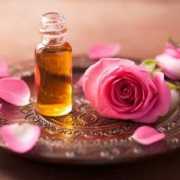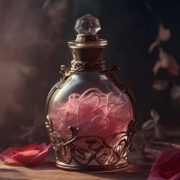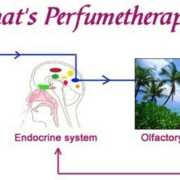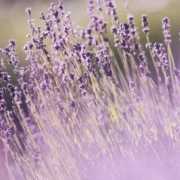The natural perfumery trend (third part)
Luca Turin may very well have started the whole process of recognition for Natural Perfumery when in 2006, in his iconic Duffnotes on NZ Folio, he declared to the perfumistas community with an amazing foresight: “There are now officially four kinds of perfumery: normal, niche, vintage and natural.”
His statement was not a recognition of the value of natural perfumes, not yet. It was only the recognition of natural perfumers’ stubbornness. He understood that they were starting a trend and that they were not going to renounce their idea of making 100% natural perfumes whatever happens and whatever Luca Turin said.
On smelling samples from the “natural perfumers” most of whom were beginners at that time, he immediately admitted the value of some of their fragrances, and the potential of natural perfumery and he openly pointed out the shortcomings in blending and materials quality.
Two years later, by bestowing 4 stars on several 100% natural perfumes in his milestone book “The Guide“, he and Tania Sanchez affirmed that natural perfumes could compete with commercial perfumes on their own aesthetic and technical grounds.
This was the beginning of the evolution in the perfumistas mind. Until then it had been universally admitted that no perfume could be great without a dose of natural, but that a modern perfume required synthetic in its structure.
Natural perfumers had been asking: “if no perfume can be great without a dose of natural, why can’t a fully natural perfume be great”?
Short of greatness (and of Luca having to chew his panama), 4 stars in “The Guide” were good enough for a start and a definite signal to all-natural perfumers of the world.
I believe that no one has had such a role in the recognition of natural perfumery as Luca Turin had.
One day I came back from Timbuktu and realized that natural perfumers were all over the most popular blogs and the web perfume magazines. The trend had started on the web.
The Arab revolutions were also started on the web, and we cannot underestimate the potential of effect that the web can have on the “real world”.
Natural perfumery has been answering the need for a radical change in a perfume production system where “change” has been meaning 1500 new frags every year, most of which are remakes and most of which are unanimously recognized as “crap”.
Natural perfumery is now for perfumistas what democracy is for the Arabs who have been raised under dictators; the hope of a new and better life without oppression, injustice, and corruption.
Natural perfumers are seen as idealistic persons, they are friendly and incorruptible. The contrary to a dictator.
What has been seen in them as fanaticism and unfit ideologism until lately, becomes now the reason for hoping that they can come up with something different and better than the perfume industry.
It is a little bit as if citizens fed up with mainstream politicians turned their votes to the ecologist and extremist parties. In a context of oppression, injustice and corruption, extremism is seen as incorruption and ecology as a way for a better quality of living.
There is much parallelism between politics and perfumery, new politicians who are independent of parties, who are ecological and idealistic soon become corrupt when they enter into the political system, and this is a greater threat for consumers when natural perfumers enter the perfume industry.
This is inevitably what the future has in store, the absorption of natural independent perfumers into the industrial system of perfumery.
Already, the Fragrance Foundation of the famous FIFI awards has set up an “Indie Committee” on which board is present the most famous natural perfumer. The FF is defined as the “non-profit, educational arm of the international fragrance industry”.
From now on, the possibility that a natural perfumer will be awarded the maximum official recognition is very concrete.
This can certainly be the mean to control natural perfumers, bestowing recognition and awards to those who are least disturbing to the industry., and boycotting other undisciplined ones.
A boycott against perfumers of the Natural perfumers Guild has indeed already been publicly announced by a member of this board on her blog and it is obvious that her political position will heavily influence her decision for the awards.
It was already known that the FIFI was not awarded by merit but by political convenience and with the setting up of this “Indie Committee”, natural perfumery is drawn by force into the politics of the industry.
Future is always very much predictable to whom study the past and observe the present, but this is for next time…
SEE ALSO:
Introduction to natural perfumery
























So nice to see you posting again… from a staunch and intractable advocate of natural perfumery. For me, it’s not that natural perfumery ‘can be great’… it’s that there is no other way!